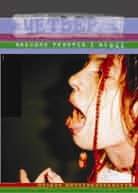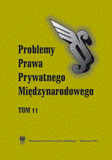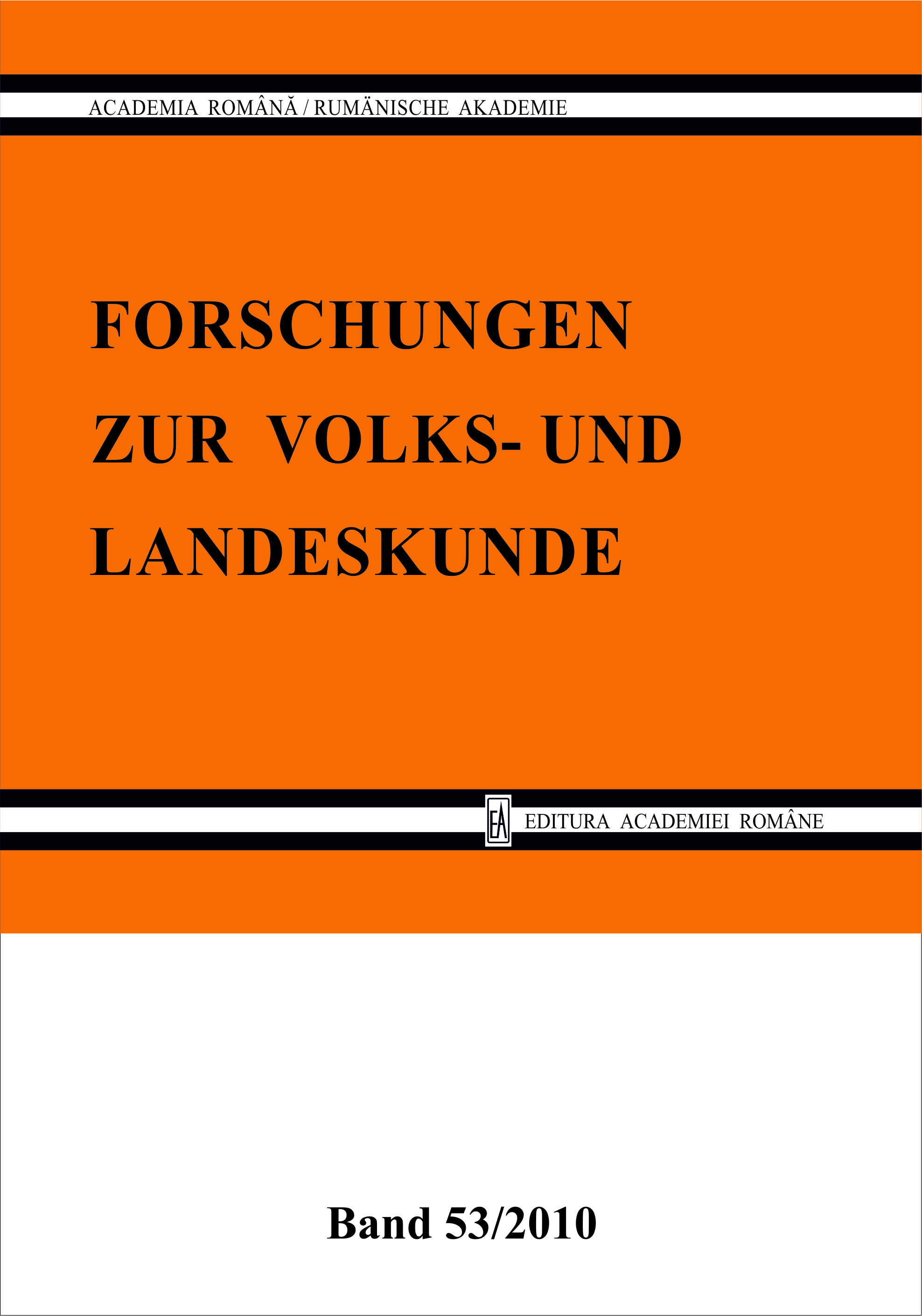


Keywords: Ukrainian literature and poetry;
More...





Ukrainian literature and poetry;
More...
Keywords: private international law in Netherlands; Book 10 of the Dutch Civil Code; general provisions of Dutch private international law; codification of Dutch conflict of law rules
Materials: Book of the Dutch Civil Code. Private International Law (translation Agata Kozioł)
More...
Keywords: actio pauliana; fraudlent transfers; applicable law; conflict of laws; private international law
Actio pauliana is an instrument of protecting of the creditors in the event of debtor’s fraudulent transfers of assets which render him unable to satisfy creditors. The question of the law applicable to actio pauliana has not been dealt with in Rome I nor in Rome II Regulation. There is no specific rule in the Polish new Act on Private International Law of 2011 either. At the same time, the particular features of this instrument — i.e. the fact that it is linked to contract, tortious liability, property law and enforcement of claims — make it difficult to be classified within the existing conflict of laws rules. In the doctrine and case there are many diverse proposals to solve this issue. The authors present seven different methods used in order to ascertain law applicable to actio pauliana. They are the following: the law applicable to protected claim, the law applicable to fraudulent transfer, tortious classification, the law of the state where transferred assets are located, the law of the state where the main interests of debtor are centred, the closest connection test and the cumulative or parallel application of two or more legislations. After examining the existing propositions, authors take a view that it is inevitable to differentiate between various elements of actio pauliana, and to subject them to either the law applicable to protected claim or to fraudulent transfer. It is nevertheless suggested that the law applicable to protected claim should play a leading role, although it may be necessary to allow for the intervention of the law applicable to fraudulent transfer, if this would be justified by the need to protect expectations of third parties.
More...
Keywords: private international law in Netherlands; Book 10 of the Dutch Civil Code; general provisions of Dutch private international law; codification of Dutch conflict of law rules
The codification of Dutch private international law was performed in a way that was not generally admitted. The legislative process took more than three decades of legislative efforts. During preparative works it was decided, that Dutch PIL would contain only conflict of law rules, while procedural matters, including jurisdiction and enforcement of foreign judgments, would be regulated in the Code of Civil Procedure. The step-by-step method, that had been chosen from the beginning of the law — making works, consisted of the preparation of separate bills that had been concentrated on the issues of limited scope, for example, separation and divorce or property law. Thus, conflict-of-law rules were diffused in a number of bills, not formally linked to each other. The process was ended by sketching the project of a bill that gathered rules of a general nature, that were developed by courts and legal doctrine. These rules were finally introduced to the act on Dutch private international law as its general part. General provisions of Dutch private international law are formulated in 17 articles. They contain, in particular, public policy clause, rules on personal status of natural persons, including legal position of aliens, on form of legal acts and on overriding mandatory rules of private international law.
More...
Keywords: same-sex marriages; same-sex registered partnerships; marriage-recognition rule; characterization of marriage; specific ordre public clauses
The Author describes the turbulent fate of the amendment to the 2011 PIL Act (O.J. of 15.04.2011, No 80, item 432) presented both in the Parliament and the Senate, concerning same-sex marriages and cohabiting couples. Pursuant to the amendment, those concerned that the conflict of laws rule provided in the article 48 of said act („The ability to conclude a marriage is determined towards each of the parties by the law of his or her nationality as of the day when the marriage is concluded”) would lead to a necessity of recognition of foreign homosexual relationships, opted for introduction of a legal definition of marriage understood as a relationship between a man and a woman, as well as for addition of a specific ordre public clause forbidding the application of any foreign rules of law on homosexual relationships. As a matter of fact, such proposal’s goal is to create a legal gap in the conflict of laws rules, as well as gaps in the provisions of the applicable systems of law, with an expectation that one may ignore foreign homosexual marriages and registered partnerships. The author criticizes the amendment, shows the irrationality of the idea of purposeful creation of legal gaps. She also explains why a conflict of laws act should not introduce substantive definitions of certain juridical concepts. Further, she objects the idea of “recognition” or “non-recognition” of foreign marriages or registered partnerships on the conflict of laws level, which is contradictory to the long-established approach of determining an applicable law for particular social situations and relationships. While showing the fundamentals of the ordre public idea, she stresses the inadmissibility of creating strict bans on application of specific provisions of foreign law, which do not take into account their contents and the consequences of their application in a particular case.
More...
Keywords: agreement to arbitrate; ostensible authority; non-signatories; group of companies doctrine; alter ego and piercing of corporate veil; collateral estoppel; pactum in favorem tertii
The paper discusses case law and opinions of legal commentators on the growing phenomenon of extension of rights and obligations arising under agreements to arbitrate and arbitral awards to members of group of companies, their shareholders and stakeholders who are not signatories of the agreement to arbitrate. At the outset of the paper, the author argues that the group of company’s doctrine constitutes just one example of a liberal trend of widening the realm of arbitrability and jurisdiction of arbitration tribunals. The author points out that this trend cannot be explained only in terms of requirements of modern business but — at least to certain extent — by the inability of the court system to cope with the growing number of litigations and the economic interests of the arbitration community (i.e. arbitrators, legal counsels and other providers of services in the field of the private system of dispute resolution). The paper analyses legal theories aimed at justifying extension of arbitration agreements and arbitral awards to the non-signatories (i.e. implied contract, piercing corporate veil, ostensible authority, alter ego doctrine, etc.). The author opines that none of these theories justify a departure from the basic principle that the touchstone of arbitration is a freely negotiated agreement of the parties to arbitrate. This principle also applies to a situation when a third party intends to join an existing agreement to arbitrate. Binding non-signatories by an arbitration agreement is conceivable in the event the law makers so decide in justified circumstances (e.g. Art. 1163 of the Code of Civil Procedure). The author also advocates that the concept of collateral estoppel should be implemented in the Polish Code of Civil Procedure in order to extend the principle of res indicata to persons having sufficient commonality of interests with the parties to a final court or arbitral judgement.
More...
Keywords: Legal succession; procedural succession; binding by the arbitration agreement
Article is devoted to the impact of legal succession of the subject of dispute in the course of proceedings before arbitration court. The author describes the views of doctrine presented in this field. Finally, he assumes that, although the arbitration court is not bound by the provisions of the state court proceedings, it is the most appropriate for the arbitration to apply rules which are in force in the state court proceedings regarding legal succession of the subject of dispute.
More...

Keywords: Sibiu; Transylvania; 18th century; Southern Romanian Province; Transylvanian Saxons
The interest in the Saxons' history, particularly in the history of Sibiu, comprises several stages. As part of a wider researchwork, the article analyses the relations between the city of Sibiu and the Southern Romanian Province in the general and regional historical context. Within this context the specific relations between the two different worlds had evolved. Although from the geographical point of view they were close, their civilization and institutions were quite different.
More...
Keywords: Conference; revue; „Forschungen zur Volks- und Landeskunde“; german minority; Romania,research; social sciences; humanities
With the conference bearing the earlier mentioned titled the “Research Institute for Social Sciences and the Humanities” in Sibiu celebrated, between the 16th and 18th of October 2009, the 50th anniversary of its house-in journal “Forschungen zur Volks-und Landeskunde”. The conference enjoyed large participation from researchers from Romania and abroad.
More...
Keywords: Mannerism; The School in Prague; Hans Rottenhammer; Brukenthal Art Gallery; Dianne and Callisto; The Doomsday; Savior’s Scourge
After a brief presentation of the European artistic environment at the end of the 16th century and the beginning of the 17th century, stressing especially on the Mannerism at the court of Rudolf II in Prague, the author reminds that among the painters that worked for the emperor was also Hans Rottenhammer. There were presented some biographic data about the painter born in München, then these are followed by considerations about his style – a mannerist in an Italian style. The author discusses then the paintings assigned to Hans Rottenhammer that are to be found in the Brukenthal Art Gallery, namely: Dianne and Callisto (oil on copper plate, 31 x 38 cm, inventory number 976) that was bought by Brukenthal as a piece of Italian art. Th. Frimmel (1894) considered it to be in Rottenhammer’s style, but Ludwig Baldass (1924) considered it to be a genuine work by this painter. Through the means of the correspondence and by comparison with other works belonging to this painter the author concluded that it is a genuine work by Rottenhammer. The Doomsday (oil on copper plate, 52 x 40,5 cm, inventory number 975) even if it wasn’t acquired by Brukenthal we can find it in the Catalogue in 1844, named as a painting in the style of Rottenhammer, it is still considered nowadays in this term, in spite of some resemblances with the painting having the same title in The National Gallery in London (image 1). Starting from the painting Jesus Scourge in The Städel Museum in Frankfurt (image 2), which is quite identical with the painting in The Brukenthal Art Gallery in Sibiu named Savior’s Scourge (oil on cooper plate, 29 x 23 cm, inventory number 391), the author considered, having little doubts, that the painting belonging to The Brukenthal Art Gallery is actually a replica of the one in Frankfurt, even if it was successively assigned to: Dürer’s School, the genre of Frans Francken the Old and probably Johann König
More...
Keywords: Research Institute of the Romanian Academy; review Forschungen zur Volks- und Landeskunde; Harald Krasser; research methods; 50s and 60s of the 20th century
Harald Krasser (1906–1981), philologist and historian of the cultural heritage of the Transylvanian Saxons, was one of the collaborators of the Research Institute in Sibiu from its very beginning in 1956. As a kind of employee associate he contributed documentation, translations and proof reading. Although the focal point of his research work changed until he emigrated in 1976, he was still interested in the development of the institute and its journal “Forschungen”. The author of this paper points out the difficulties an intellectual had to face in adapting to the research mechanisms of the “peoples’ democracies” in the ‘50s and 60s of the 20th century. Among the sources of documentation Joachim Wittstock studied that part of Krasser’s bequest which, when leaving Romania, remained in Sibiu.
More...
Keywords: Romania; minority; minority and cultural policy; ethnic interest groups
The article deals with the main thrust of Romania’s minority and cultural policy during the transformation process during the twenty years which have passed since the bloody coup of December 1989. After a brief presentation of the ethnic structure in the censuses of 1992 and 2002, the article focuses on the legal basis of minority policy, the importance of ethnic interest groups for the enforcement of rights and the significance of education for national minorities. It also highlights the impact of the commitment of international organizations on Romanian minority policy. In conclusion, it can be stated that the internationalization process has led to an increase in the importance of ethnicity. While the rights of national minorities are formally guaranteed, there is a discrepancy between aspiration and reality in the implementation of those rights.
More...